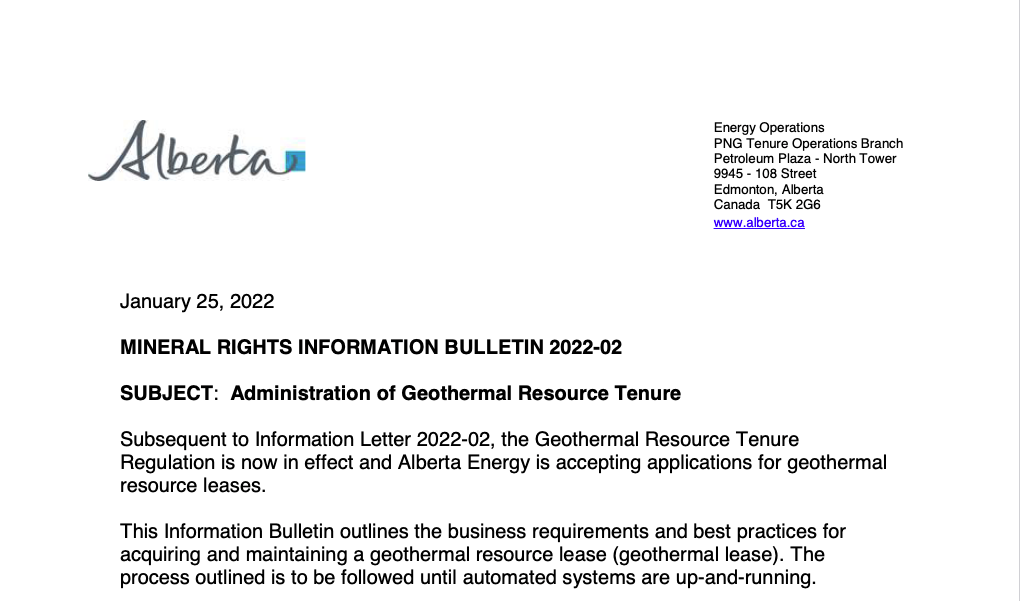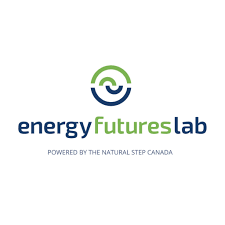|
CanGEA member Alberta Innovates's podcast "Shift by Alberta Innovates" has a new episode, "Navigating to Net-Zero" about geothermal energy in preparation for Inventues 2022. The podcast featuring CanGEA Chair Alison Thompson is available here and wherever you get your podcasts.
CanGEA Chair, Alison Thompson, is set to speak at the Inventures Event, in Calgary, AB, at 3:45 PM on June 2nd, 2022. She will speak alongside Alberta Innovates's Director of Renewable and Alternative Energy, Vanessa White. The "Bringing the Heat: The Role of Geothermal in Attaining Net-Zero Emissions" segment is described as "Building on Alberta's prolific expertise in subsurface development to access oil and gas resources, forward-thinking energy companies explore geothermal resource development."
Inventures will take place between June 1st to 3rd, 2022 and is for: investors; entrepreneurs; research, academics and thought leaders; and business, investment and professional service providers. You can learn more and register for the event here. On April 7, 2022, the Federal Government released their 2022 Budget. Within the Budget, there was no direct mention of support for Canada’s geothermal industry. However, many programs used by the geothermal industry have been recapitalized, which is welcome news! CanGEA will continue to advocate for geothermal-specific funding opportunities and greater recognition at the Federal level for the industry.
The 2030 Emissions Reduction Plan details the actions that are already driving significant climate reductions. The new measures will ensure that Canada reduces emissions across the entire economy to reach its emissions reduction target of 40 to 45 percent below 2005 levels by 2030 and put us on a path to achieve net-zero emissions by 2050. This Plan is designed to be a comprehensive roadmap that reflects levels of ambition to guide emissions reduction efforts in each sector.
This Plan has recapitalized two key programs that the geothermal industry uses:
The 2030 Emissions Reduction Plan supports fuel switching and retrofits for building heating and cooling. CanGEA supports this Plan an its efforts in playing an instrumental role in the continuation to diversify Canada’s energy mix. Click here to learn more. The Government of Alberta has issued a Bulletin discussing its Geothermal Resource Tenure Regulation, which complements the recently proclaimed Geothermal Resources Development Act (GRDA). Alberta Energy is also now accepting applications from companies interested in exploring and developing geothermal resources. The Electronic Transfer System (ETS) for submitting applications for geothermal leases is still under development. CanGEA was a stakeholder throughout the development of GRDA and its regulations for the Alberta Government and Alberta Energy Regulator (AER). More information on our policy comments provided to the Alberta Government and AER, along with other policy submissions, can be accessed by CanGEA’s corporate members. Click here to become a member.
CanGEA Member, Kitselas Geothermal Inc, will be one of five Indigenous projects to receive funding from the Government of British Columbia through the First Nations Clean Energy Business Fund (FNCEBF).
The official BC press release utilizes the following quotes from Kitselas Geothermal Chair, David Try: “Kitselas First Nation is grateful to be supported by the B.C. Ministry of Indigenous Relations and Reconciliation’s First Nations Clean Energy Business Fund for our renewable geothermal energy project Fuel for Reconciliation. Kitselas Geothermal Inc. has been developing this project since 2014 and has injected millions of dollars into the economy in and around our traditional territory near Terrace. The funding will be a tremendous help in progressing the project’s 2022 field season. “Decentralized energy projects have the potential to create local jobs, advance technology, develop skills and decrease the environmental impact of our energy choices. Fuel for Reconciliation is poised to deliver both geothermal energy and greenhouse gas reductions on the north coast, benefiting many stakeholders.” Read the entire press release here. The Government of Alberta has officially proclaimed Bill 36 Geothermal Resource Development Act. CanGEA believes that this geothermal-specific legislation and regulatory framework in Alberta are a positive step for the industry. We look forward to watching the Alberta geothermal industry grow. CanGEA will continue to strongly advocate for the geothermal energy industry within Alberta and the rest of Canada.
This November, the Energy Future Lab convened their Fellows in person for the first time in two years.
At this meeting, industry thought leaders met to discuss energy transitions and the future of Alberta energy. Representing CanGEA and the Canadian geothermal industry was CanGEA chair Alison Thompson. Learn more about Energy Future Labs here. On October 27th, 2021, the World Geothermal Congress (WGC) issued the Reykjavik Declaration that outlines a set of three principles and three recommendations for the global geothermal sector to step up its role in the energy transition. The aim of the three principles is to provide a guide for the geothermal industry, while working to achieve wider geothermal adoption throughout the world’s economy.
Moreover, the Reykjavik Declaration established key recommendations to the world’s decision and policy makers. These recommendations focus on coalition building between nations engaged in geothermal energy, incentivizing geothermal development, and communicating more broadly the benefits of geothermal energy development. CanGEA supports the publishing of the WGC’s Reykjavik Declaration and believes that its creation is key to help further engrain geothermal energy within the transition to a greener world economy. CanGEA feels that these principles and recommendations are vital to limiting the global temperature rise to 1.5°C and aiding in international climate goals. |
Archives
September 2023
|
||||||||





